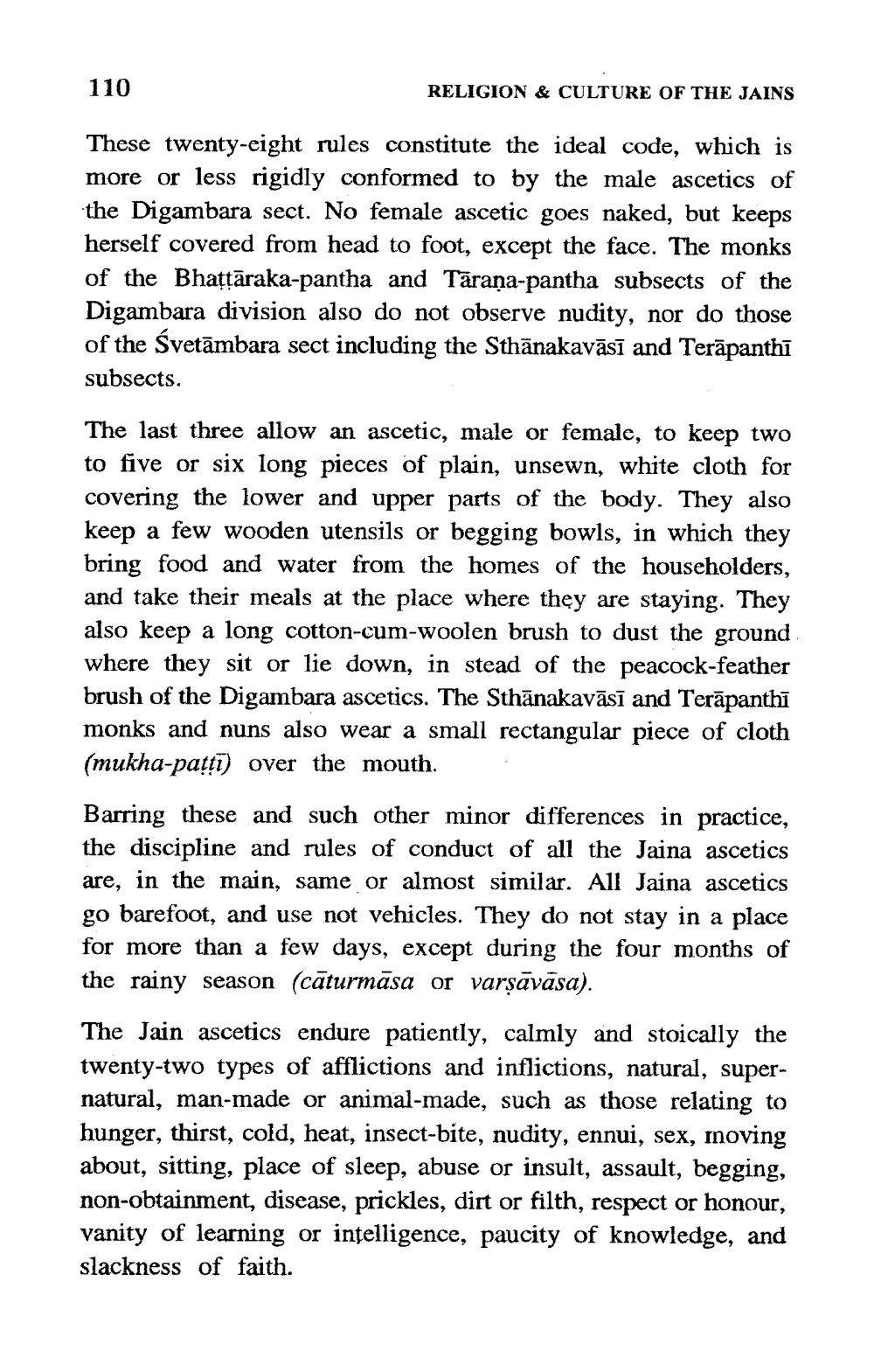________________
110
RELIGION & CULTURE OF THE JAINS
These twenty-eight rules constitute the ideal code, which is more or less rigidly conformed to by the male ascetics of the Digambara sect. No female ascetic goes naked, but keeps herself covered from head to foot, except the face. The monks of the Bhațțāraka-pantha and Tārana-pantha subsects of the Digambara division also do not observe nudity, nor do those of the Svetāmbara sect including the Sthānakavāsī and Terāpanthi subsects.
The last three allow an ascetic, male or female, to keep two to five or six long pieces of plain, unsewn, white cloth for covering the lower and upper parts of the body. They also keep a few wooden utensils or begging bowls, in which they bring food and water from the homes of the householders, and take their meals at the place where they are staying. They also keep a long cotton-cum-woolen brush to dust the ground where they sit or lie down, in stead of the peacock-feather brush of the Digambara ascetics. The Sthānakavāsī and Terāpanthi monks and nuns also wear a small rectangular piece of cloth (mukha-pațțī) over the mouth. Barring these and such other minor differences in practice, the discipline and rules of conduct of all the Jaina ascetics are, in the main, same or almost similar. All Jaina ascetics go barefoot, and use not vehicles. They do not stay in a place for more than a few days, except during the four months of the rainy season (cāturmāsa or varşāvāsa). The Jain ascetics endure patiently, calmly and stoically the twenty-two types of afflictions and inflictions, natural, supernatural, man-made or animal-made, such as those relating to hunger, thirst, cold, heat, insect-bite, nudity, ennui, sex, moving about, sitting, place of sleep, abuse or insult, assault, begging, non-obtainment, disease, prickles, dirt or filth, respect or honour, vanity of learning or intelligence, paucity of knowledge, and slackness of faith.




